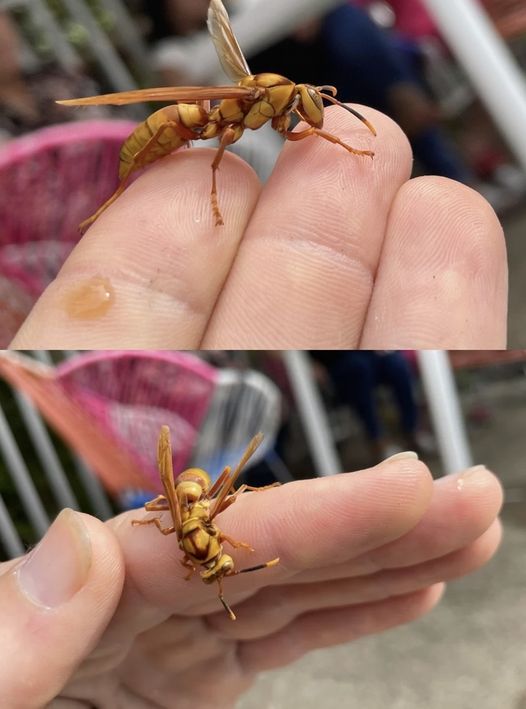Wasps are the kind of insects that instantly trigger panic for many people, and I totally get it—I’m right there with you. I’m terrified of anything that can sting or bite, even the tiniest bugs that may not actually do any harm. There’s just something unsettling about their quick movements, fluttering wings, and the possibility that they might land on you with bad intentions.

While I can appreciate the importance of bugs in the ecosystem and even have a soft spot for bees, wasps are a different story. Bees, at least, serve a clear purpose and typically mind their own business unless provoked. Wasps, on the other hand, feel like nature’s little troublemakers, always ready to pick a fight. I’ve only been stung by wasps a few times, but each experience was so painful that it left a lasting impression. One of the worst times was when I stepped on a wasp while barefoot on my balcony trying to grab laundry. The pain shot through my foot like fire, and I limped around for days afterward.
That’s why I think everyone should know exactly what to do if they’re ever stung by a wasp—it’s one of those things you don’t think about until it happens, and by then, you need answers fast. First off, let’s clarify something: wasps sting, they don’t bite—unless you’re a small insect they’re hunting, but that’s a different story. Unlike bees, which leave their barbed stingers behind and die shortly after, wasps have smooth stingers that allow them to sting multiple times. That means they can—and will—hit you more than once if they feel threatened. Wasps are territorial and can become aggressive if they think you’re too close to their nest. They’ve even been known to attack bees, disrupting hives and causing major issues in the insect world. Physically, you can usually tell a wasp apart from a bee because wasps are thinner, glossier, and lack the fuzzy appearance that makes bees look a bit friendlier.
The symptoms from a wasp sting can vary widely from person to person. Most people experience pain, redness, and swelling at the sting site. But for others, especially those with allergies, a sting can trigger more severe symptoms like difficulty breathing, swelling of the face or throat, rapid heartbeat, or even full-blown anaphylaxis, which is a medical emergency.
So, what should you do when you get stung by a wasp? First and foremost, stay calm and slowly move away from the area—running and flailing can provoke more stings. If there happens to be a stinger left in your skin, gently scrape it out using something like the edge of a credit card or your fingernail. Avoid using tweezers, as squeezing the stinger can release more venom. Next, wash the area thoroughly with soap and water to prevent infection. Applying a cold compress can help reduce swelling and numb the pain—just make sure to wrap the ice or frozen peas in a cloth to avoid direct contact with the skin. Over-the-counter pain relievers can ease discomfort, and antihistamines can help with itching and swelling. Always follow dosage directions carefully.
Most importantly, monitor yourself for any signs of a serious allergic reaction. If you notice difficulty breathing, swelling in unusual areas, dizziness, or a fast heartbeat, get emergency medical help immediately. For those who spend a lot of time outdoors or have previously had reactions to stings, prevention is key. Avoid strong fragrances and brightly colored clothing, both of which attract wasps. Cover food and drinks while outside, and make sure garbage cans are sealed tightly. If you discover a wasp nest near your home, don’t try to remove it yourself—call a pest control professional who can handle it safely. My few encounters with wasps were enough to make me respect their power, even if I still want to keep my distance. While their stings are painful, knowing how to respond can make all the difference. Wasps may look like villains in our backyards, but they do have roles in nature, like helping control pests and aiding pollination. Understanding them—and how to deal with them—makes it a little easier to coexist, even if you’d rather admire them from afar.





